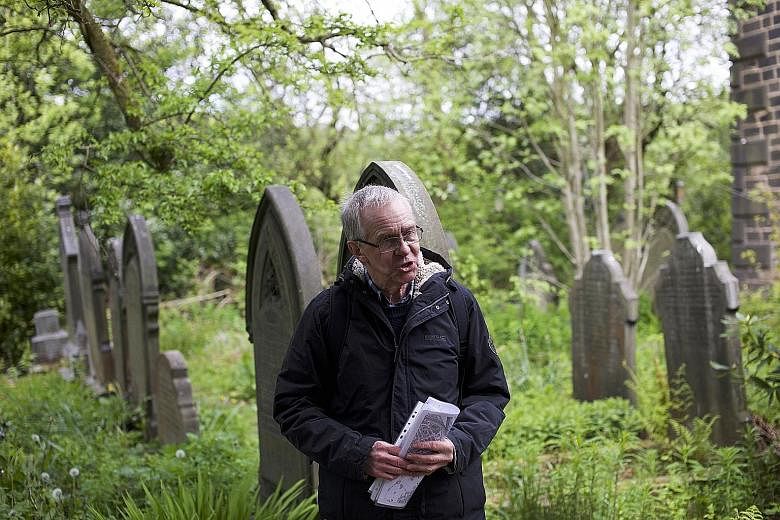In the small town of Todmorden in West Yorkshire, Britain, volunteers take people on graveyard tours.
Neighbourhood florists run workshops to get people talking about end-of-life issues, using the life cycle of flowers as inspiration.
And funeral brass bands offer music as part of a community-initiated festival to start conversations around death and bereavement.
In East London, St Joseph's Hospice runs a Compassionate Neighbours social movement that matches volunteers with people living with a long-term or terminal illness. Its 200 volunteers - the youngest is 24 years old and the oldest is 86 - are trained in areas such as relationship analysis, active listening and self-care. The volunteers are matched to people who live nearby and have similar interests.
Severn Hospice in Shropshire adopted a similar programme and there has been a significant reduction in the use of unscheduled healthcare services by people receiving volunteer support. Emergency services were freed up to tend to more complicated medical cases.
These are some examples of "compassionate communities" in Britain. Earlier this week, Professor Allan Kellehear, a palliative care expert from Britain, was invited to Singapore to share how compassionate cities can be built. He was the one who developed a charter to guide the systematic formation - from workplaces to schools to policy work - of a compassionate city.
Prof Kellehear, a professor of end-of-life care at the University of Bradford, founded the world's first academic public health palliative care unit in Australia in the 1990s.
At a workshop as part of the 12th Asia Pacific Hospice Conference, he discussed the topic with key stakeholders such as Ms Teoh Zsin Woon, the Ministry of Health's deputy secretary for development, Ms Denise Phua, an MP and disability rights advocate, Dr Gillian Koh, deputy director of research at the Institute of Policy Studies, and Sister Geraldine Tan, administrator of St Joseph's Home.
A compassionate city is defined as a community that recognises the needs of the terminally ill, their caregivers and the bereaved, and seeks to enlist all sectors of society to support them and reduce the negative social, psychological and medical impact of serious illnesses, caregiving and bereavement.
Ms Phua said that before people can be galvanised to take action, there must first be sufficient awareness and understanding of the needs of the dying and their caregivers.
Dr Koh suggested tapping the resources of charities, and faith and civic groups to get people to plan early for death.
Said Prof Kellehear: "It is good to look at community engagement, but instituting policies regarding death, loss and care is also key because there may be structural barriers in society that need to be addressed."
• To find out more about compassionate communities, visit www.aftercicely50.com. Lien Foundation produced the films to mark 50 years of the modern hospice and palliative care movement.


